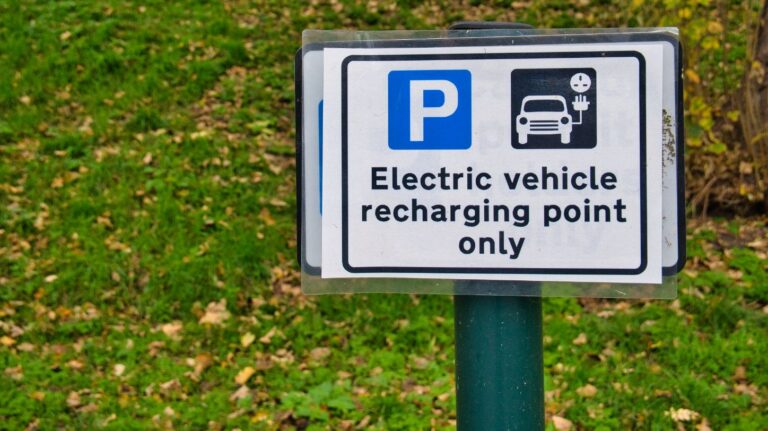New statistics show more than 50,000 public electric vehicle (EV) chargepoints have been installed across the UK this year.
The stats, produced using data supplied to the UK Department for Transport (DfT) by Zapmap, show there are 44% more public chargepoints (52,602) than this time last year.
According to the DfT, this rate of growth means the country remains on track to reaching its target of 300,000 public chargepoints by 2030.
The figures come as the UK’s path to reaching zero-emission vehicles by 2035 is set to come into effect next year.
The zero-emission vehicle (ZEV) mandate requires 80% of new cars and 70% of new vans sold in Great Britain to be zero emission by 2030.
What’s more, the 2035 end-of-sale date for new internal combustion engine vehicles puts the UK in line with other major global economies, including France, Germany, Sweden and Canada.
READ MORE: UK announces £70m EV chargepoint pilot scheme at motorway services
UK technology and decarbonisation minister Anthony Browne said: “Passing 50,000 public chargepoints is a key milestone in our journey to zero emission driving and shows the incredible progress we’ve made to provide the infrastructure for drivers to go electric.
“With government and private sector investment, we are backing drivers by expanding our charging network – creating jobs and putting us well on the way to our target of 300,000 public chargepoints by 2030.”
In the UK, EVs currently make up 16% of the car market – one of the highest shares in Europe and higher than the European Union average of 13%.
As part of the UK government’s recently-announced ‘Plan for Drivers‘, it intends to consult on ways to make installations cheaper and quicker for chargepoint operators, review the grid connections process for chargepoints, and also consult on the expansion of permitted development rights to make installations easier.
Additionally, the government’s ‘Connections’ action plan aims to overhaul the way projects access the electricity grid and reduce delay time, positively impacting all types of connection customers including EV chargepoint operators.
Applications for the first round of the £381m Local EV Infrastructure fund are currently being assessed.
As previously reported by CiTTi Magazine, the funding aims to deliver tens of thousands more chargepoints and transform the availability of charging for drivers without off-street parking.
CiTTi COMMENT: Why are we still on the fence about EVs?
In addition, the On-street Residential Chargepoint Scheme has opened to all UK local authorities. Grants are also available to help businesses make the transition through the government’s Workplace Charging Scheme, as well as people in flats and rented accommodation through the Electric Vehicle Chargepoint grant.
Additionally, new laws recently came into force that aim to provide EV drivers with easier and more reliable public charging, mandating that prices across chargepoints are transparent, easy to compare and that a large proportion of new public chargepoints have contactless payment options.
The regulations also require that providers open up their data, so drivers can find an available chargepoint that meets their needs.
This is designed to make it easier for drivers to locate chargepoints, check their charging speeds and determine whether they are working and available for use.
Achievements and innovations in EV charging will be celebrated at the third annual CiTTi Awards, which will be held on 26 November 2024 at the De Vere Grand Connaught Rooms in London. Nominations officially open in March 2024. Please visit www.cittiawards.co.uk to learn more about this unmissable event for the UK’s transportation sector.





